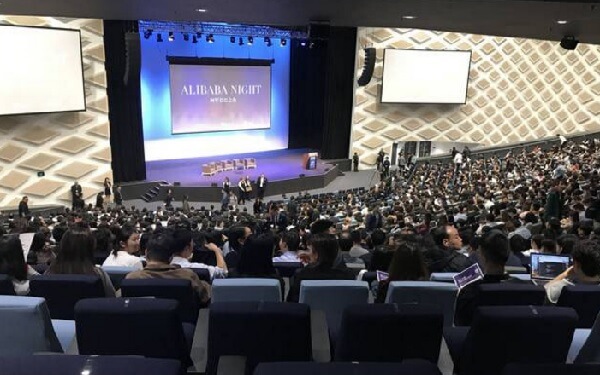
Tenet Fintech Group Inc. (CSE: PKK, OTC Pink: PKKFF)
Commercial Lending in China Ready to Tenet!

Zhang Yong, chief executive of Alibaba Group Holding Ltd., flew to Australia last week, where he delivered a speech to over 3,000 attendees at the International Convention Center close to Sydney’s Darling Harbour.
Alibaba’s cross-border trade in Australia will mainly serve 1.2 million local ethnic Chinese and help more local merchants to establish their presence in the Chinese and Southeast Asian markets, he said.
Australia is home to 24 million people, almost equal to Shanghai’s population, but at one point its e-commerce environment could be described as a ‘desert.’ Much to the surprise of many Chinese, Australia, a country with a frontier culture with many similarities with American Culture, did not welcome the initiation of Amazon.Com Inc.’s Australian site until the end of last year. By contrast, Alibaba established its Australia-New Zealand headquarters in Melbourne at a rather earlier date.
Chen Si, an ethnic Chinese working in the information technology industry in Australia for three years, has been accustomed to the local “expensive and slow” e-commerce distribution. The freight of an ordinary commodity is often above AUD10 (USD7.5), and that of a major appliance is as high as AUD60-100. He once waited two weeks before finally receiving the headset he bought online. More surprisingly, he spent AUD800 on buying an air-conditioner when he first arriving in Australia, but its in-home installation cost him AUD900.
That is why local people are unwilling to shop online. Unlike China and the US which have e-commerce giants, in Australia, electric appliance or comprehensive department stores like Harvey Norman, Myer, and David Jones have opened online shopping outlets. This means that it is impossible for them to integrate nationwide logistics and reduce freight on a large scale like e-commerce giants.
Differing from Chinese consumers who prefer to buy Australian milk powder and health care products, local Chinese have a huge appetite for China’s domestic products, especially electronic products, which are not cheap in Australia. Chen Si said the real-time distribution mode like China’s online-offline Hema supermarket is unimaginable in Australia where labor costs are higher, and population density and distribution are very imbalanced, making logistics extremely difficult.
Self-pickup has become a more realistic choice in this logistical environment. Cainiao Network Technology Co. operates a self-pickup site in Hurstville, an ethic Chinese community in a Sydney suburb. Ethnic Chinese can pick up their deliveries bought online or send local goods to China and buy daily necessities. Cainiao now operates at least 130 self-pickup sites in Australia. Hong Kong and Taiwan have also adopted this mode to deliver goods.
Cainiao is adopting a multi-dimensional cooperative relation with third-party service providers in Australia while serving the bilateral business of imports and exports, under which 4PX Worldwide Express Co. — which bills itself as China’s cross-border e-commerce solutions provider — undertakes the partial logistics process of storage, trunk logistics and end distribution services, while Cainiao jointly sets up two order fulfillment centers (OFC) — Global Fulfillment Centers — with Global Express Co. in Sydney to put goods in storage in advance and carry out drop-shipping to allow domestic consumers to receive imported commodities within five days. Cainiao also cooperates with Australia Post, which focuses on assisting small and medium Australian merchants in selling their commodities to the world.
Alibaba is still weaving an invisible net. Geographically, the Southeast Asian market is the closest market to Australia, and the one which enjoys the fast-growing e-commerce business, and in which Alibaba has e-commerce partners, as well as the logistics hub under construction in Malaysia. Is there any chance of extending the China-Australia cross-border trade to Southeast Asia and India?
“When we talked about imports to China with relevant parties in various countries, we also considered the possibility of imports to Southeast Asia since it is the region where Alibaba has the most solid overseas business positioning,” Zhang told Yicai Global. Integrating the supply end to establish a digitally-driven global supply chain network is Alibaba’s next important target, he added.
Source: yicaiglobal.com